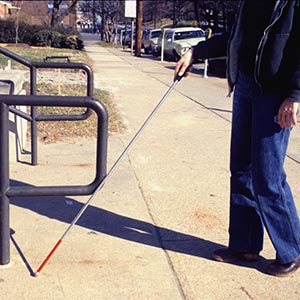But when the goodness and loving kindness of God our Savior appeared, he saved us, not because of works done by us in righteousness, but according to his own mercy, by the washing of regeneration and renewal of the Holy Spirit, whom he poured out on us richly through Jesus Christ our Savior, so that being justified by his grace we might become heirs according to the hope of eternal life. | Titus 3:4–7
On Sunday, we talked about the blind beggar, Bartimeus, who approached Jesus and pleaded to have his sight returned. In the opening, Andrew pointed out that his name could mean either ‘son of filth’ of ‘son of honor’ depending on what ethnicity he was. In a story about a blind man being healed, I think this detail is helpful. The language of ‘blindness to sight’ is how the Bible describes the process of being saved. We are people who are sons and daughters of filth, but through the ‘washing of regeneration and renewal of the Holy Spirit’ we are invited into God’s family, as sons and daughters of honor. We are not one or the other, we are simultaneously people of filth and people of honor.
This paradox is highlighted even more during Holy Week. This week leading up to Easter Sunday is full of these seeming dichotomies that exist in harmony. This pattern of filth and honor is repeated in many of the episodes that make up the final week of Jesus’ life (pre-resurrection).
It begins with Palm Sunday, where Jesus enters into Jerusalem to rescue His people, and is treated with honor by some, and filth by others. His claim to be the Messiah divides people between those who believe Him and those who see Him as a threat (and a liar).
As the week progresses, Jesus teaches all around Jerusalem, calling the most honored religious men to repent. Those who are seen as the most holy are revealed as filth by Jesus. This is not to just to ‘afflict the comfortable and comfort the afflicted,’ but Jesus aims to show everyone that they are sinners in need of grace. God opposes the proud, but gives grace to the humble (1 Peter 5.5, Proverbs 3.34, James 4.6). What this means is that we have to embrace our filth in order to gain honor.
At the Last Supper, Jesus teaches the disciples the upside-down order of the kingdom. As He who is the one of honor bends down to wash the filth from their feet, he tells his disciples to use their position to serve.
And he said to them, “The kings of the Gentiles exercise lordship over them, and those in authority over them are called benefactors. But not so with you. Rather, let the greatest among you become as the youngest, and the leader as one who serves. | Luke 22:25–26
In God’s economy, it is not how much honor that you can attain that matters, but how well you serve. Those who serve will be given honor.
Then Jesus is arrested and judged. In this mock trial, the only person who has no filth, is condemned to death. He who deserves all honor and glory is mocked, beaten, and killed. What is most amazing about Good Friday is that Jesus accepts this. Death is the final step of the process of Jesus humbling Himself: setting aside His honor to become human (Phil. 2), suffering through the filth of this world, taking on the punishment of sin for His people. It is in His death that He frees sinful people from their debt. At the cross, Jesus is made to be filth so that His people can receive honor. Paul says it this way:
For our sake he made him to be sin who knew no sin, so that in him we might become the righteousness of God. | 2 Corinthians 5:21
This all leads up to Easter Sunday, where Jesus raises from the filth, in glory, to show Himself as the Savior of the world. As He appears in honor, it reveals that all who are connected to Him – who see their filth and rely on Him for salvation – share in His honor. As we prepare for Sunday, it is not only a time to celebrate life, but to recognize that this life was given to undeserving people. We should walk into church this Sunday (and every Sunday) recognizing that we are people who are both children of filth and children of honor. By the grace of God, the honor triumphs over the filth and our identity is secured by our Savior who shows that he has power over all things, including death.

